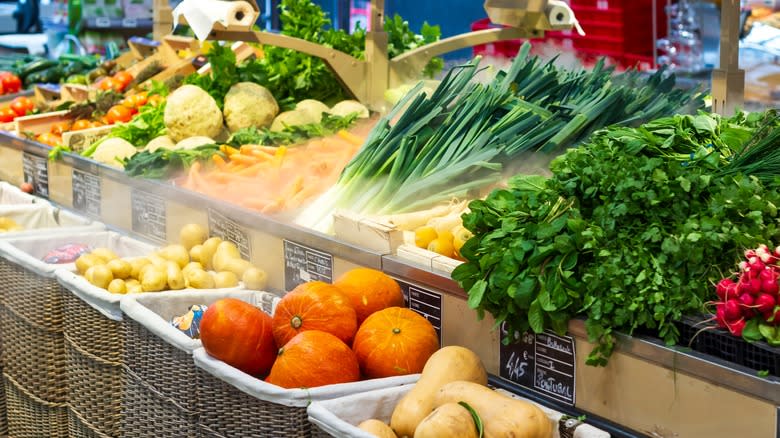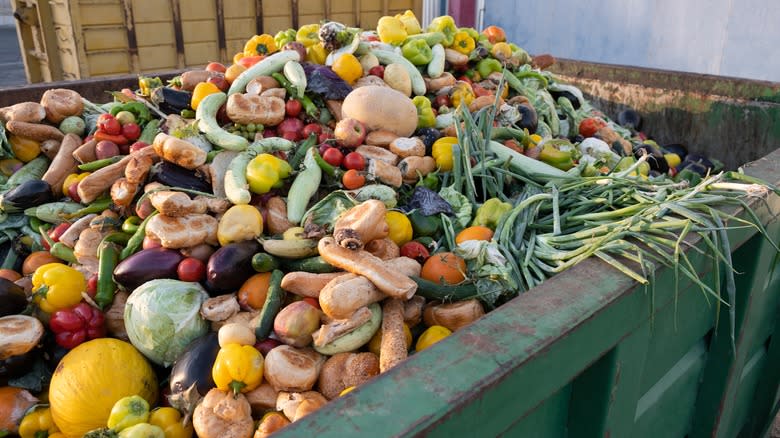How France Combats Food Waste In Grocery Stores

In grocery stores, perfectly good food may get tossed simply because it's close to its expiration date or looks imperfect. This contributes to 1.3 billion tons of food getting wasted per year worldwide. Food that sits in landfills harms the environment, and wasted food has the potential to mitigate world hunger. This is why one country has taken extreme measures to address this growing issue.
In 2016, a law went into effect that forces large grocery stores in France to donate their still-consumable food instead of tossing it out. Grocery stores smaller than 4,300 square feet are exempt, so the law only applies to about 2,700 stores in the country. And the government is not afraid to crack down on violators. Stores caught breaking this law are fined the equivalent of $4,000 in U.S. currency, and managers can face up to two years in prison. Through the law, education about food waste and its solutions was also added to the French school curriculum.
The French Federation of Food Banks, which helps bring food from grocery stores to charities, believes the legal effort to reduce food waste and hunger is working. It told PBS News it estimates that the 46,000 tons of food that would have been discarded annually now gets donated to food banks and other charities.
Read more: US Foods You Surprisingly Can't Find In Canada
Food Waste Is Bad For People And The Environment

Most food that gets discarded winds up in landfills, where it eventually decomposes and emits methane gas, one of the largest contributors to climate change. If the grocery stores this law affects choose not to donate their food, they must compost it, which still leads to the creation of greenhouse gasses — but to a lesser extent. That's why donating food is the most environmentally friendly option.
Malnutrition and food insecurity are also major issues, including in France. According to the World Population Review, starvation is worse in France than in any other country in Europe. French Parliament member Guillaume Garot told PBS News he was inspired to create this bill after seeing a news report featuring grocery stores throwing away seemingly good food, all while people go hungry.
As one of the most wasteful countries, the U.S. could learn a thing or two from France. Initiatives to combat food waste, like Too Good To Go and Imperfect Foods, are becoming more popular in the U.S. However, 30% of all the food in grocery stores still gets discarded. While the U.S. doesn't have legislation like France's, there are still measures you can take to help combat food waste, like shopping for items close to their expiration dates (you may even save money in the process) and not letting ugly produce put you off.
Read the original article on Mashed.

 Yahoo Finance
Yahoo Finance 